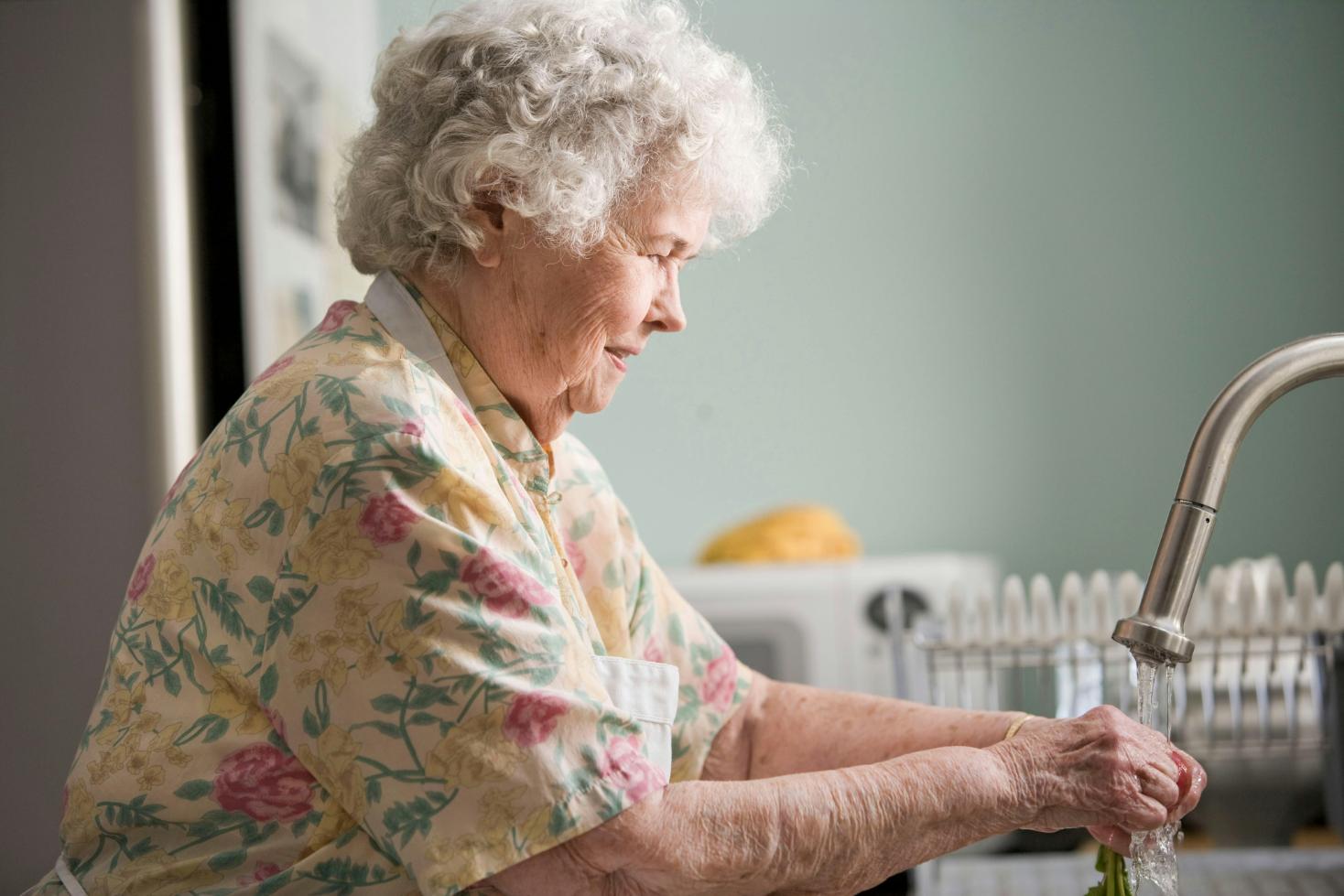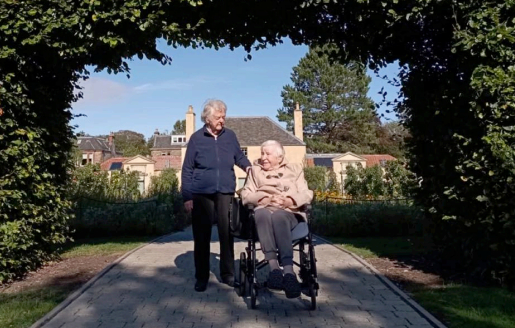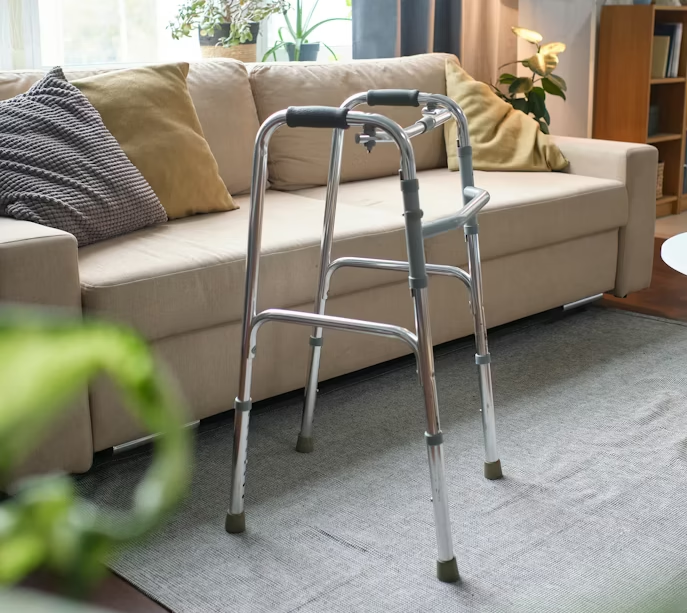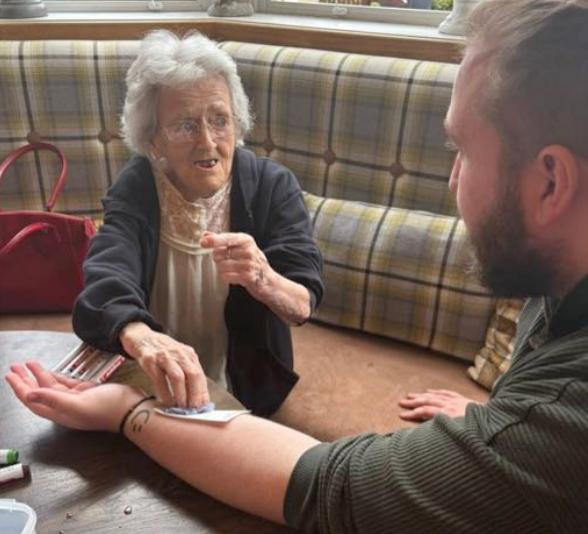How Much Do Care Homes Cost?

As the average life expectancy across the UK continues to increase, the demand for care homes is also on the rise which is now accompanied by higher costs. The average care home fees are currently the highest they have ever been which means families are more worried than ever about if they will be able to find a place for their loved one due to affordability.
Currently, in the UK, there are many different types of care homes that an individual can choose to reside in, each offering its own unique set of care services and facilities. Because of this, care seekers are also finding it difficult to understand which type of care or home they should choose.
In this blog, we will dig into what the average weekly cost of care is across the UK and what financial help is available either through the local authority or NHS-funded care.
Care Home & Nursing Home Costs Across the UK
Every care home and nursing home will offer different fees depending on what care types they offer, the level of needs they cater to and their in-house facilities. There are also some other external factors that can affect the care home costs including accessibility and location. You should expect a care home located close to a city with accessible local transport to be more expensive than one that is more rural.
Care homes and nursing homes will structure their fees differently. Some will expect fees to be paid per week, others may require a monthly payment. To find out what specific payment plan you will have to follow, we recommend contacting the care home manager.
It is also important to remember that every care home fee will include different services. Some may only cover the basic care services and anything else may be additional, and other care homes may cover costs associated with day trips, salon treatments and medical services. It really is dependent on the home.



Average Care Home Fees
Lottie tracks the average residential care home cost per week, but is important to remember that residential care is the most basic care type and that the average nursing home cost will be higher. Each average is relative to its location so for care homes in populated cities, the average cost for all care types will be higher than someone residing in a home that's further afield from the nearest local town or city. To find out the specific fees for a certain care home or nursing home in your area, get in touch with the care home manager.
Before choosing a care home, make sure you research multiple homes in your chosen area as no two care homes are the same, and often people form an opinion on their favourite home. It's important to find the right care home that can meet your family member's needs and expectations including lifestyle choices.
Respite Care Costs
Respite care is a short-term care type provided in a care home. Before an individual is admitted, the care home will usually carry out a needs assessment that determines the type of care needed and the specific needs that need to be catered for. Respite care is most common for individuals who are recovering from a hospital stay, illness or surgery before resuming their everyone routine. Alternatively, if a caregiver requires a break from their 24/7 care duties, respite care is a suitable option.
Residential Care Costs
In a residential care home, the weekly fee will typically cover personal care costs, meals and accommodation. You should consider residential care if you are able to live independently for the most part but require some support with mobility, washing and general personal care tasks, as well as the daily opportunities to socialise with older people in a luxury setting. As residential care is the most basic type of care, it usually has the lowest fees.
Nursing Care Costs
A nursing home or nursing care tends to be more expensive than residential care as the level of needs are more advanced, meaning residents will receive specialist care from a registered nurse rather than a care assistant. Nursing care costs will also include accommodation, meals and personal care in addition to medical care.
Dementia Care Costs
In the UK, there are currently around 900,000 people who are living with dementia. Dementia care home fees are similar to nursing homes due to the specialist care required. Many care homes will also offer different levels of dementia care, whether it's dementia care for early stages or more advanced stages.
What Should You Expect to be Included When Paying for Care?
The cost of residing in a care home can vary significantly based on its location, the range of care services it offers, and the different facilities available. Typically, UK care home fees encompass accommodation, meals or personal care. If a resident requires medical support through nursing care, these services are also included in the fees.
Care homes may charge additionally for specific services, activities and facilities. It is highly advisable to ask the care home team about any extra costs when considering a care home, compare them to other care homes and find the best fit for your family member.
What is an All-Inclusive Care Home
In recent years, all-inclusive care homes have gained significant popularity, largely because of the convenience of being able to pay the care home fee upfront and having all services and amenities included. While the overall cost might be slightly higher compared to traditional care homes, the appeal lies in the ease of accessing all services, amenities, and activities, making it an attractive choice for older people around the UK. Typically, an all-inclusive care home will offer residential care, respite care, dementia care as well as palliative care for a continuum of care.
In the midst of the current cost of living crisis, peace of mind comes from not having to worry about unexpected expenses associated with food costs and energy bills. With an all-inclusive approach, a single fee covers your personal care, accommodation, access to facilities, support services, and other utility costs.
It's worth noting that each care home provides specific care services to its residents and not every facility will be appropriate for your loved one or align with their needs, so thorough research on multiple care homes is advisable. Taking the time to investigate and compare your options before you decide to pay for care will help ensure a well-informed decision.



Who is Responsible for Paying Care Home Fees
Most commonly, the person who requires the care or their loved ones would pay for care costs, making them a self-funder. However, self-funding isn't an option for everybody which is where the local authority funding or Complex Clinical Care would be introduced. To find out if you qualify for assistance, a financial assessment, also known as a means test, would be carried out and look into a person's savings and assets to see if they come under a specific savings threshold.
To find out if you should pay for care home fees yourself or if you are eligible for local authority assistance, get in touch with your local council. They will be able to provide a means test and look at a person's financial situation as well as their care needs.
Financial Support Services
Several options exist for individuals seeking financial assistance with their care home or nursing home expenses. The specific funding types available and the amount of funding accessible to someone is dependent on individual circumstances. The most common funding is receiving contributions from the local council which will be only provided if the person's assets and income meet the threshold.
Another possibility is to apply for Complex Clinical Care funding (previously known as NHS Continuing Healthcare), which is designed for individuals with significant healthcare needs. A personal evaluation will be conducted by a team of healthcare professionals to determine eligibility. This is different from local council funding in which a means test is only carried out to determine whether a person should contribute to accommodation fees.
Alternatively, some individuals may decide to go with a deferred payment agreement, where the local authority pays the care home fees, and the individual repays the amount once they sell their home. This will only be available to those with significant assets such as a home that they own.
It's crucial to understand that eligibility for financial aid varies according to individual circumstances and is not always guaranteed. It is advisable to contact the care home manager to see if the home will accept local funding.
Local Authority Funding
Local authority funding is where the local authority provides financial support to cover the expenses associated with care homes or nursing homes for individuals who lack the financial resources. Eligibility for assistance from the local authority is determined by a means test, which involves a financial evaluation based on the individual's savings and assets as well as their private and state pensions.
If an individual qualifies for funding from the local authority after a means test, they will receive a weekly payment which is used for the cost of the care home. However, the amount may or may not fully cover the entire cost of care home fees. The actual budget allocated by the local council can fluctuate depending on the individual's healthcare requirements and how close you are to the savings threshold.
It's important to note that when individuals receive care funded by local authorities, they typically only cover the fundamental care home expenses, which include accommodation, meals, and personal care. Any extra services or amenities, such as transportation, social activities, or personal items, may require payment from the individual or a family member. These additional costs are often referred to as a "top-up fee”.
Self-Funding Your Own Care Fees
Being a self-funder means that you won't be relying on financial assistance from the NHS or the local authority. In this scenario, you or your loved ones are entirely responsible for covering your own care home fees, as well as any additional services required. Self-funding can be a suitable choice for individuals who have sufficient savings and assets to pay for care expenses independently or for those who do not meet the eligibility criteria for government-funded support due to being above the upper capital limit.
It's worth noting that care home fees can vary significantly based on various factors, including the size and location of the facility, the level of care provided, and the amenities offered. Moving into a care home is a big financial responsibility, and it is vital that you carefully consider all the options before making a final decision to ensure that all costs are appropriately factored in.
Complex Clinical Care
Complex Clinical Care offers financial support to individuals facing significant healthcare needs. This funding extends to cover nursing expenses and various healthcare-related costs. A needs assessment is also carried out by a team of healthcare professionals to see if a person's health needs are severe enough to be deemed eligible. Complex Clinical Care requires a means test to check for eligibility in contributing accommodation costs only.
Eligibility for Complex Clinical Care focuses on the individual's healthcare requirements, specifically whether they have a primary health need. This includes individuals living with severe disabilities, long-term health conditions, illnesses, or terminal conditions. Those who meet these criteria will have all their care-related expenses covered such as personal care, nursing care, meals and additional healthcare costs.
While Complex Clinical Care stands as a valuable funding option, it's vital to remember that eligibility is not guaranteed and requires a complex application. It is advisable to look into alternative options such as local authority funding, deferred payment agreements, equity release or a top-up fee to ensure that all available options for financial support are taken into consideration.
Receive Exceptional Levels of Care at Trinity House Care Home
At Trinity House Care Home in Edinburgh, we are proud to offer our residents beautiful surroundings and access to the finer things in life. Our personalised care options allow our residents to enjoy rich and meaningful days in a place they can call home.
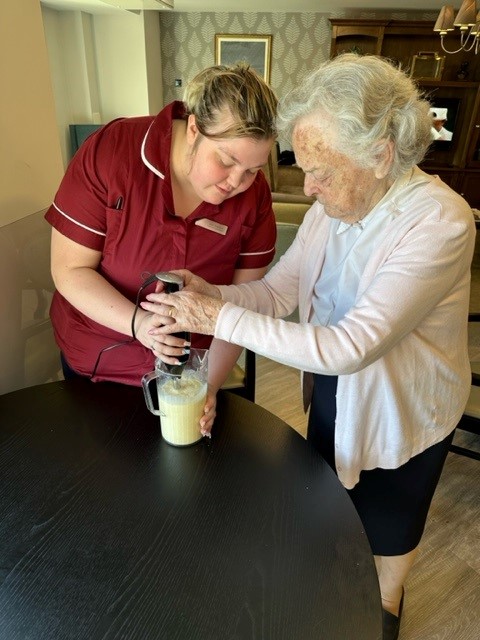

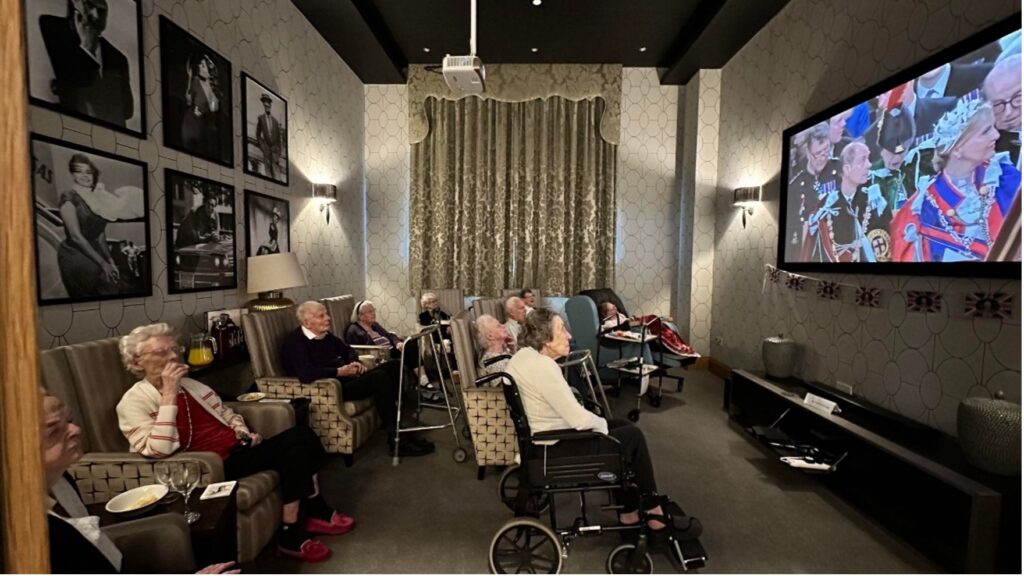
We have a team of dedicated and friendly individuals who provide around-the-clock residential care, respite care, dementia care, nursing care and palliative care. We strive for residents to maintain their dignity and independence whilst receiving the support services they need and making use of fantastic on-site facilities.
Our expansive range of facilities and amenities offer residents plenty of opportunity to try out new interests or continue with their much-loved hobbies. Whether they choose to utilise our private gardens, library, beauty salon, varied activities program or cinema, at Trinity House, there is something for everybody to enjoy.
In order to make Trinity House a place that our residents consider their home-away-from-home, we collaborate with them and their family members to create a care package that outlines their exact needs and preferences. We review this on a regular basis to ensure all residents are supported from the moment they move in through to receiving end-of-life care.
Enjoying Life in Edinburgh
If you’d like to see how we make life truly engaging for our residents, we’d love to invite you to explore our activities programme. Come and see for yourself how we create moments of fun and connection every single day at Trinity House Care Home. We'd love to welcome you to take a tour of our home—please get in touch to book your personalised visit.
